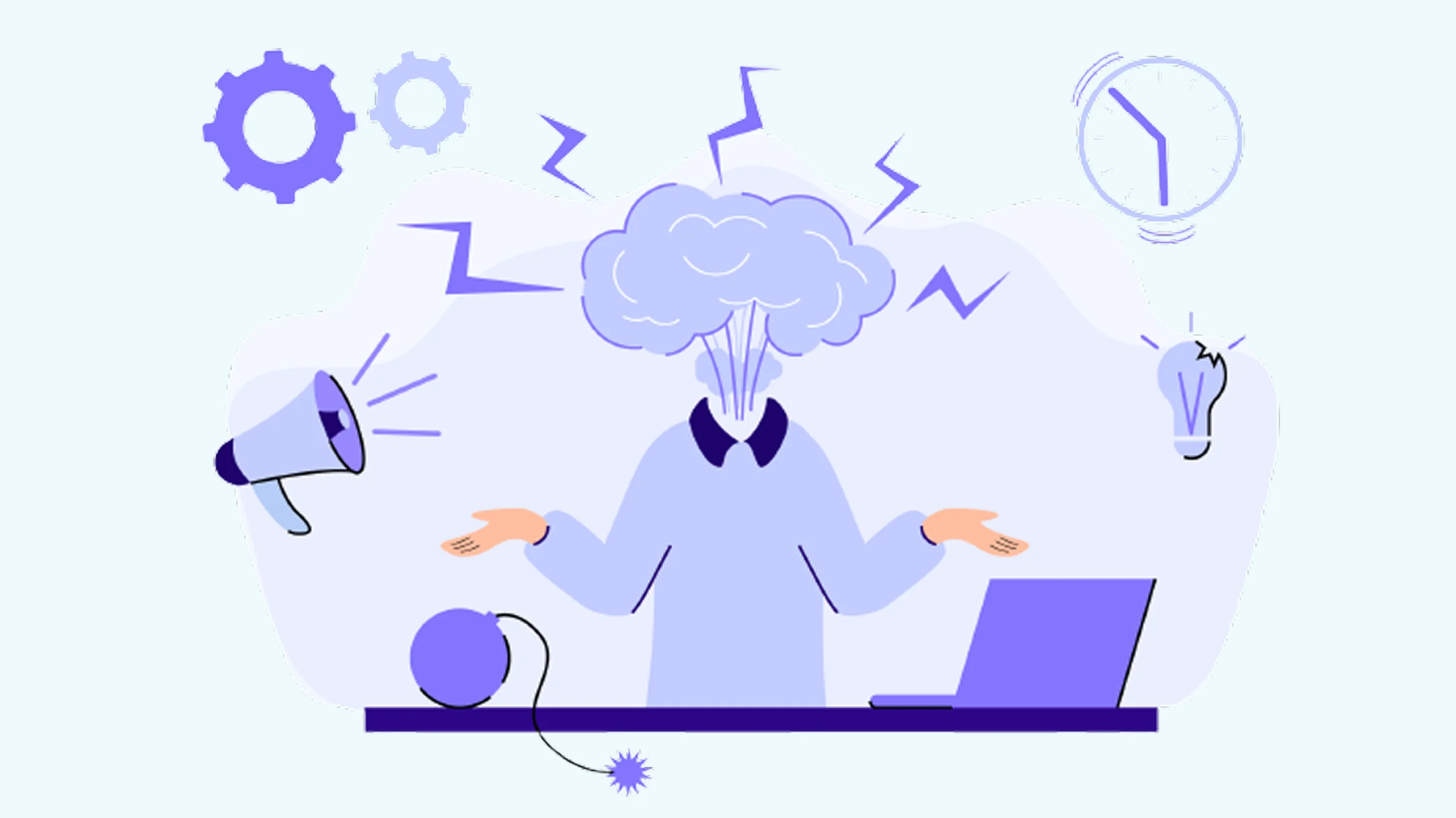Table of Contents

Stress is something we all face in our lives, either as a result of work, relationships, or even our daily life tasks. However, were you aware that chronic stress can affect your heart health as well? Gaining knowledge about the relationship between stress and heart health can make you sufficiently motivated to follow the steps towards a calmer and healthier lifestyle.
Here we discuss the impact that stress has on your heart and what you can do to correct it in this blog.
Stress occurs when your body is exposed to something difficult or dangerous. It develops a stressful reaction, which causes the hormones such as adrenaline or cortisol to make your body ready to fight or flee.
Although short-term stress is often beneficial in some cases, chronic stress may produce numerous health issues, such as high blood pressure, sleep problems, and rapid heartbeat, which can adversely influence the heart.
Although stress is not a direct risk factor for heart attack, chronic exposure to emotional or physical stress can increase the risk of developing heart problems. Stress-induced heart disease is a growing concern, especially among people with pre-existing heart conditions. Acute emotional stress can even provoke a condition known as stress cardiomyopathy, which has the same signs of a heart attack.
Studies have revealed that the health of the heart is directly linked to emotional stress. This is the way stress can potentially affect your cardiovascular system:
The Indian Council of Medical Research (ICMR) has identified stress as one of the top lifestyle-related risk factors that have increased the number of cases of cardiovascular diseases in India.

So, how does stress affect heart health? You should be aware of the symptoms which indicate that your cardiovascular system is being affected by stress:
These are some of the regular indications that you need to have a heart health checkup by your medical provider. Our top cardiac doctors at Chetpet provide cardiac care support and personalized supportive care treatment to people with stress-related heart issues.
A crucial part of heart protection is learning to cope with stress. These are some of the easy but effective things to make your heart calm and healthy:
Knowing how to live in a state of pressure will give your body and your heart a burnout . This is one of the significant effects of chronic stress on the heart. The impact on heart health associated with chronic stress includes an increased risk of developing blood clots, blood vessel inflammation, and rhythm disturbances. In the long run, stress may cause heart disease or worsen pre-existing heart conditions.
Stress is a reality, but when it is not addressed, it silently causes a strain on your heart. You can enhance your cardiovascular health by listening to your body and responding to stress in a way that avoids straining your heart, and by making other heart-healthy lifestyle decisions.
We believe that our emergency cardiac care team at Velappanchavadi treats the entire person, mind and heart included. Keep your emotional life light and peaceful, it’s good for your heart, both metaphorically and physically.
Embracing calm can build emotional stability as well as cardiac performance. For expert care and support, Dr.Mehta’s Hospitals offers a wide range of comprehensive medical services in Chennai tailored to your health needs. Contact the medical staff for any enquiries.
Q1. Can stress cause heart problems even in young people?
Yes, chronic stress can impact heart health at any age, especially if coupled with poor lifestyle choices.
Q2. Is emotional stress as harmful as physical stress for the heart?
Both types of stress can strain the heart. Emotional stress often leads to hormonal changes that may affect heart rhythm and blood pressure.
Q3. Can managing stress reduce the risk of heart attacks?
Absolutely. Mindfulness, exercise, and proper sleep can lower your overall risk of heart attacks.
Q4. Are women more affected by stress-related heart issues?
Studies suggest women may experience different symptoms and are at higher risk of stress-related heart conditions like stress cardiomyopathy.
Q5. What kind of doctor should I consult for stress and heart health?
A cardiologist, preferably one familiar with stress-related heart conditions, can provide the best guidance.
Table of Contents
Recent Post
About us
Dr. Mehta’s Hospitals is a leading multispecialty hospital in Chennai with over 90 years of excellence. With 400+ beds and 80+ specialties, its Chetpet and Velappanchavadi centers offer advanced, state-of-the-art, compassionate care under one roof.
Chetpet Contact Details
Velappanchavadi Contact Details
Feel free to ask your queries on
Our Specialities
About us
Dr. Mehta’s Hospitals is a leading multispecialty hospital in Chennai with over 90 years of excellence. With 400+ beds and 80+ specialties, its Chetpet and Velappanchavadi centers offer advanced, state-of-the-art, compassionate care under one roof.
Chetpet Contact Details
Velappanchavadi Contact Details
Feel free to ask your queries on
Our Specialities
Quick Links
Center Of Excellence